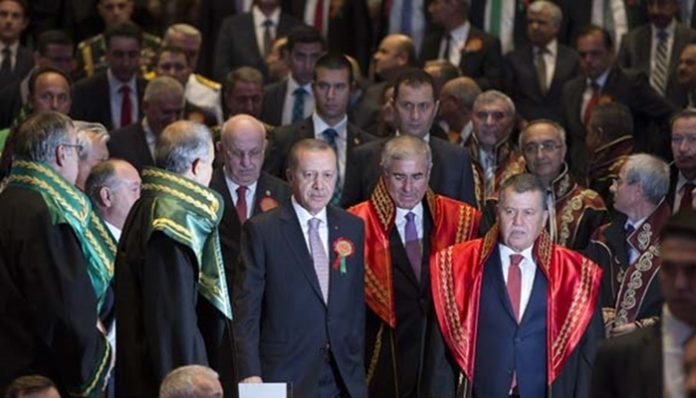
Turkish authorities are reportedly using investigations of judges and prosecutors for alleged ties to the Gülen movement as leverage to ensure that their rulings will be favorable to the government, according to the Cumhuriyet daily.
The investigations, often based on tenuous evidence, such as payphone call logs without actual call content or attendance at Gülen-linked schools, have reportedly been archived to be used as needed in the future to pressure judges and prosecutors.
Turkish President Recep Tayyip Erdoğan has been targeting followers of the Gülen movement, inspired by the late Muslim cleric Fethullah Gülen, since corruption investigations revealed in 2013 implicated then-Prime Minister Erdoğan as well as some of his family members and his inner circle.
Dismissing the investigations as a Gülenist coup, Erdoğan designated the movement a terrorist organization and began targeting its supporters, initiating broad purges and widespread reprobation.
Judicial officials handling sensitive cases are reportedly working in a climate of fear of themselves becoming victims of investigations and accusations. Critics argue that this has destabilized the judiciary, further eroding trust amid growing concerns of political interference.
More than 4,000 judges and prosecutors were removed without due process following a failed coup in July 2016, which Erdoğan immediately blamed on the Gülen movement, a faith-based civil society movement. Gülen and the movement consistently denied involvement in the coup attempt or any terrorist activity.
The Erdoğan government is also accused of replacing many purged members of the judiciary with young and inexperienced judges and prosecutors with close links to the ruling Justice and Development Party (AKP).
Observers argue that these appointments, combined with widespread investigations of judicial figures, have compromised the judiciary’s independence. Human rights organizations have frequently criticized the judiciary for alleged politicization, claiming that its decisions often align with government interests.
Turkey was ranked 117th among 142 countries in the rule of law index published by the World Justice Project (WJP) in late October.














